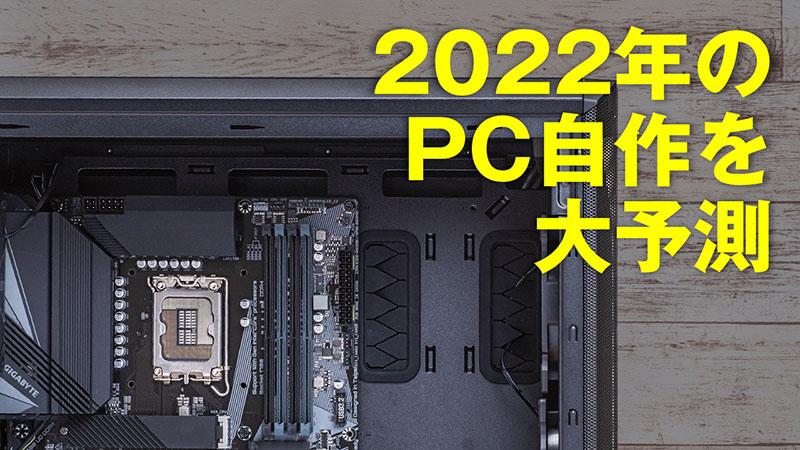I want to accept it, but I can't
The corona-only ward at Ashigara Kami Hospital in western Kanagawa Prefecture.
August 1st, 5pm. Doctor Keisuke Iwabuchi's PHS (hospital phone) ringtone rang.
From the phone, I hear the apologetic voice of the doctor in charge of the prefectural transport coordination team, who is coordinating the hospitalization of corona patients. We have already accepted two people on this day.
"I know it's not possible, but I'm calling you, but can you accept it? Sat is 88."
"I can't wait for that. But... I'm sorry, but I can't do it any more today. I'm really sorry.
"This is an unprecedented situation. I have 88, 91, 89... four or five people who are being adjusted for hospitalization."
Sat is an abbreviation for Saturation and represents "oxygen saturation". A value that indicates the concentration of oxygen in the blood. Below 90 is considered "respiratory failure". It is a dangerous condition in which various organs throughout the body do not receive enough oxygen, requiring rapid response.
In the classification of the severity of the new corona, it is a condition that is classified as "moderate II" (respiratory failure that cannot take in enough oxygen from the lungs on its own, and requires oxygen administration).
Since patients with moderate disease II have a high risk of becoming severe, they have been required to be hospitalized immediately and receive treatment such as oxygen administration. However, it is said that there are an increasing number of cases where people cannot find hospitals and are forced to wait.
In February 2020, Mr. Iwabuchi, who has been engaged in corona medical care since accepting and treating infected patients on the cruise ship Diamond Princess. In April last year, a part of the hospital was designated as a dedicated ward for patients with moderate symptoms of the new coronavirus (mainly in a condition that has deteriorated to the point where oxygen inhalation is required), and the hospital has been working together to build a treatment system.
Even for Mr. Iwabuchi, the current situation is a tense situation with "no previous experience".
The "fifth wave" caused by the spread of the Delta Mutant Virus. How is one of the biggest challenges, "difficulty accepting moderately ill patients," happening? I heard the reality of the scene.
*Information is as of Wednesday, August 4 at 5:00 am
"I can't accept it even if I want to" The real story of the corona secondary disease ward
ーーFirst of all, please tell us about the latest situation.
(Iwabuchi) Until now, our hospital has been cooperating with Kanagawa Prefecture to provide a treatment system for patients with corona moderate disease. However, this "fifth wave" is surpassing the existing system in no time.
For example, on August 2nd (Monday), three patients were discharged from the hospital, but the hospital soon filled up with new patients. All patients were in their 50s and 60s. His oxygen saturation was below 90 and he had severe pneumonia. They were speechless, unsteady on their feet, and exhausted, so steroid pulse therapy was started for all of them, and high-flow oxygen therapy (Nasal High Flow) was introduced for two.
At 10 p.m. that night, I received a call from a nurse at a hotel that serves as a sanatorium for mildly ill patients. She said, "Symptoms have worsened and there are people with oxygen saturation levels of 88. I requested an ambulance, but I was told that the ambulance could not transport them unless there was a place to accept them, so I contacted the hospital directly." That was it.
It is heartbreaking to imagine him calling multiple hospitals at night while holding a person whose respiratory condition is deteriorating. was hospitalized one after another, and there were plans to be hospitalized the next day and preparations for an increase in the number of beds, so we had no choice but to decline due to the limit of acceptance.
We are planning to increase the number of beds today (4th) to cope with this situation. However, our hospital is a core hospital in the Ashigarakami area, so we can't stop medical treatment other than corona. An increasing number of people are getting sick in the heat. While looking at the balance with general medical care, we are trying to work out the number of beds that our hospital can provide.
Those in their 30s to 50s have worsening pneumonia, but the number of treatment options has increased
ーーI feel that this is a situation I have never experienced before. I heard. What is the difference?
(Iwabuchi) The biggest feature of the 5th wave is that the virus is becoming more infectious. And there was an increase in severe pneumonia among young people in their 30s to 50s. In this area, vaccination of the elderly has progressed, and the number of elderly hospitalizations has decreased sharply, but the number of hospitalized patients continues to increase.
On the other hand, there are some positive changes. There are more options than ever before, including medications that can be used for treatment. Although there is still no fundamental drug that can completely cure the disease, it has become possible to prevent the occurrence of severe pneumonia and to control the formation of life-threatening blood clots (blood clots). .
In addition, nasal high-flow therapy (a treatment that supplies a high flow of oxygen from a short tube in the nose to help breathing) is also used for patients whose condition has deteriorated to the point where they would otherwise have to use a ventilator. ), the number of cases in which the most severe symptoms are overcome and the number of patients who recover and are discharged from the hospital is increasing.
Is the Delta Mutant Virus Attenuated?
ーーIsn't the delta mutant virus attenuated with fewer deaths on social media? It seems that there is also a voice.
(Iwabuchi) As long as I see the actual patients, I don't think so. I think that the fact that patients are young and have the physical strength to survive the treatment period and that the number of treatment methods has increased is the reason why the number of deaths is decreasing. Even young people are at risk of dying if pneumonia worsens and oxygen is left untreated.
Due to the rapid increase in the number of patients with moderate illness, there are cases where it is not possible to smoothly hospitalize and receive treatment. If this situation continues, I am afraid that delays in treatment will lead to more severe cases and even more deaths.
People who received two doses of the vaccine were not hospitalized
--Do you feel the effects of the vaccine?
(Iwabuchi) Yes. So far, no one has been hospitalized after receiving two doses of the vaccine. What is still helpful in this situation is that the number of hospitalizations of elderly people with severe illness and prolonged hospitalization, which had existed until now, and hospitalizations due to clusters from facilities for the elderly have decreased sharply.
If the elderly hadn't been vaccinated in the current situation, it would have been a devastating situation that I don't even want to imagine.
Regarding "Treatment at home is the basics" What is the reaction on the ground? For those who are particularly expensive, we will secure the necessary beds so that they can be admitted to the hospital. ' was announced. How do you take it as a site that accepts patients with moderate illness?
(Iwabuchi) The number of infected people is increasing rapidly day by day. In general, symptoms worsen and hospitalization takes place about a week after the onset of symptoms. Each hospital, including our hospital, is desperately trying to increase the number of beds, but there are limits.
Therefore, by having people with moderate illness I (difficulty in breathing such as shortness of breath and pneumonia, but not requiring oxygen inhalation) who have been hospitalized in principle, be recuperated at home. , I think there was talk of making it possible to respond quickly to people who needed hospitalization.
In the case of our hospital, most of the patients who have been requested to accept these days are moderate II (those who need oxygen administration and are at high risk of becoming severe). Such people have no choice but to be hospitalized. So I don't know if this policy change will change the situation of our clinic. More and more people are getting worse at home or in nursing homes.
Hearing hospitalized patients, oxygen saturation drops rapidly in about a day in many cases. In some cases, it is difficult to feel shortness of breath as a subjective symptom, so it is necessary to frequently check with a pulse oximeter at home or in a sanatorium in order to pick up on the severity of the condition. Oxygen monitoring during home care has already been carried out, but there is a fear that the rapid increase in the number of people on the waiting list will make it impossible to carry out detailed checks.
Also, a neutralizing antibody drug has recently been approved that is expected to have the effect of suppressing aggravation in those at risk, but it is not indicated for patients who have started oxygen. And since this drug is currently only supplied to hospitals, it cannot be used well.
If the goal is to "free up a bed for moderately ill patients," we will ask those who have overcome the mountain of symptoms and are on the way to recovery to leave the hospital early and spend the rest of their recuperation at home. There may be a way to have local practitioners cover it.
However, practitioners are also very busy with general medical care, fever response, home visits, and vaccinations. I think that it will be a heavy burden to follow up on patients at home, and the workload on the hospital side will increase further as the turnover speeds up. In any case, even if we build a system from now on, it will not be in time for the rapidly increasing number of patients to become severe.
Even if people think, "I'm tired of hearing this," the message you want to convey from the field
--Is there a message you want to convey from the standpoint of the field?
(Iwabuchi) It may be necessary to change the system, but what is fundamentally important is "decreasing the chance of infection" and "increasing the vaccination rate". You must be tired of hearing that, but this insidious virus takes advantage of your heart.
・Wear a mask when interacting with people outside
・Don't have dinner with people other than your family
・ Enforcement of hand disinfection
・Avoid crowds
Until the vaccination rate is sufficiently high, we have no choice but to steadily continue to avoid such opportunities for infection. With or without the Olympics, that doesn't change.
Already, there is a growing situation in the Tokyo metropolitan area where sufficient medical care cannot be received smoothly even if the infection becomes severe and the symptoms become severe. Moreover, there is no prospect of a breakthrough in the situation.
To all of you who read this article, please do what you can do now to prevent infection. As a medical worker, I will continue to do what I can every day.
*Author's note
The above content is a rewrite of Mr. Iwabuchi's FB post in an interview style with his consent, with some additions.
ーー
(coverage cooperation)
Keisuke Iwabuchi
Kanagawa Prefectural Hospital Organization Kanagawa Prefectural Ashigarakami Hospital
General Medicine Medical Director








